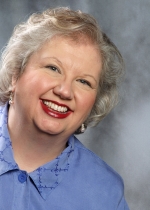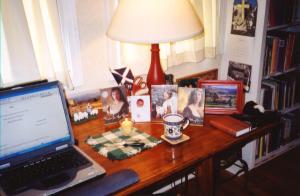 If you love to write and long to get published, here are a few tips to help you along your path toward publication.
If you love to write and long to get published, here are a few tips to help you along your path toward publication.
The first step to getting published is becoming the very best writer you can be—obvious, I know, but it's the unavoidable truth (that is sometimes avoided!). Writing is both calling and craft. Once your calling is sure, it’s time to work on craft, those skills that always need improvement, even after a person is published many times over.
My own writer’s journey is so typical, I hope you won’t mind if I share it here. At age ten I started writing full-length—and truly amateurish—Nancy Drew-style mysteries, beginning with the kinds of books I knew and enjoyed. Of course, no one read those marble-cover notebooks except my friends and teachers, but even at that age I was encouraged to pursue writing as a future career. Hence, I learned two early lessons that have served me well: (1) Write what you love and (2) seek the counsel of wise advisors.
A few years later, I was the editor of my high school newspaper, and eventually earned a Bachelor of Arts degree in English, so both literature and creative writing have always been an important part of my life. I'm also a voracious reader, also a common trait among writers—and a necessary one. Read the best books in your chosen genre, and don't forget the classics.
My first published article came in 1990. The Lookout, a much-circulated church magazine, paid me $90. Ta-da! I was finally a published writer. Magazines are a great place to start. Read several issues before you query, so you have a sense of what the editor already likes.
I also spent ten years as a radio personality, during which I wrote (and recorded) hundreds of commercials and developed a following among our local radio listeners. Those kind folks began to invite me to speak to various church, civic, and educational groups. By 1986, I was writing and presenting 40, 60, 80 programs a year for all kinds of groups, local and regional, general and Christian. In 1987, I took a big leap of faith (literally!) and left radio to pursue a full-time professional speaking career.
Soon people began asking, "Do you have your material in a book?" It was time to return to my first love—writing. In 1992, I self-published a small book of original humor, Does Dinner in a Bucket Count?, illustrated by a talented local artist. Because my speaking career was already well established (by then I was doing 100 programs a year, all over the country), I was able to sell those books after my programs and quickly recoup my expenses. We sold about 7,000 of those little $5 books in the first six months (via back-of-the-room sales and through the mail) and were thrilled with the initial response. I do not generally recommend self-publishing unless you have that kind of avenue for selling and distributing them, though there are whole organizations out there who can help you self-publish successfully.
When I met with my first professional book editor in 1992 to discuss a nonfiction book idea, the publishing house was interested for one simple reason: I already had a "platform," a built-in audience. And, as a speaker, I had enough marketing and promotional skills to help them make the book happen. A great title is a beginning, your very best writing is a necessity, but unless people know it's in the stores, all that effort is for naught. Publishers are now looking for marketing "partners”—authors who will work with them to launch a book into the marketplace. That could include everything from doing radio and print interviews to mailing or emailing your potential readers to doing signings at local bookstores to posting your books on a website.
That initial meeting with a publisher bore fruit, and my first official book, “One Size Fits All” and Other Fables", was published in 1993. Since then, another twenty-six books have followed with various publishing houses. My first children's book, The Pumpkin Patch Parable, was published in 1995, and was based on a story I'd already been telling from the platform for twelve years. It encompassed the same basic theme of that first $90 article, though turning it into a children’s book was a long process. I had to write and rewrite, submit and resubmit that story before I got a publisher's attention. I also found and paid the artist myself (not standard procedure!) and agreed to buy the first 5,000 copies that rolled off the presses (gulp!). We thought we'd have those pumpkin books in our warehouse until the Lord returned, but in truth, we sold all those and another 5,000 copies since, and the publisher sold several hundred thousand. God is good!
Whatever you do, don’t get discouraged! Sometimes you have to knock and knock and knock before the right door opens. Patience is everything in getting published, especially with children's books because 1) they are so expensive to produce (all that colorful artwork) and 2) far fewer children's books are published each year than in other categories and 3) many people think it's easy and therefore the manuscript submission count is high. There are many wonderful resources out there for writers. Several of my very favorite resources are pictured here. The Writer's Digest books are fabulous—I own dozens of their titles, and recommend their monthly magazine as well. Call them at 1-800-289-0963 to request their latest catalog. Writer's Market is a valuable resource to have on hand if you are serious about your writing career. If you are writing strictly for the Christian market, then you'll want to get Sally Stuart's Christian Writers' Market Guide, also published annually.
There are many wonderful resources out there for writers. Several of my very favorite resources are pictured here. The Writer's Digest books are fabulous—I own dozens of their titles, and recommend their monthly magazine as well. Call them at 1-800-289-0963 to request their latest catalog. Writer's Market is a valuable resource to have on hand if you are serious about your writing career. If you are writing strictly for the Christian market, then you'll want to get Sally Stuart's Christian Writers' Market Guide, also published annually. If you haven't been to any writers workshops yet, hurry to the one nearest you. I've been to several—sometimes as an attendee, sometimes as a speaker. Both Sally's book and Elaine's newsletter have information on various Christian writers' workshops. These are an incredible opportunity for you to 1) sharpen your writing skills, 2) network with other writers, 3) meet with editors, and 4) see if your ideas match up with their current needs. Go, go, go!
If you haven't been to any writers workshops yet, hurry to the one nearest you. I've been to several—sometimes as an attendee, sometimes as a speaker. Both Sally's book and Elaine's newsletter have information on various Christian writers' workshops. These are an incredible opportunity for you to 1) sharpen your writing skills, 2) network with other writers, 3) meet with editors, and 4) see if your ideas match up with their current needs. Go, go, go!
If you are willing to work very hard, you just might get published. But if you don't ever see your name in print, it doesn't mean you don't have writing talent. No way! It may mean your proposal and their publishing needs weren’t a good match today. Polish your proposal and try another house tomorrow! Above all, write because you enjoy it and because you feel called to do it. If someone else loves your work and wants to publish it, that's terrific, but even if they don’t, you're already having a great time pursuing your passion! I truly wish you the very best, my writing friend. You’ll find more thoughts about the writing life on my Ask Liz page. Until our paths cross at a writer’s conference someday, God bless you!
![]()
P.S. This information is the sum of what I can provide you concerning writing and publishing. I’m afraid I’m not able to review your writing samples, story ideas, or manuscripts. So sorry! Neither my schedule nor my editorial skills allow for handling critiques. Trust me, you want a pro for that service. Thanks for understanding!
(From Liz Curtis Higg's website, http://www.lizcurtishiggs.com/miscpages/writerhelp.htm)

